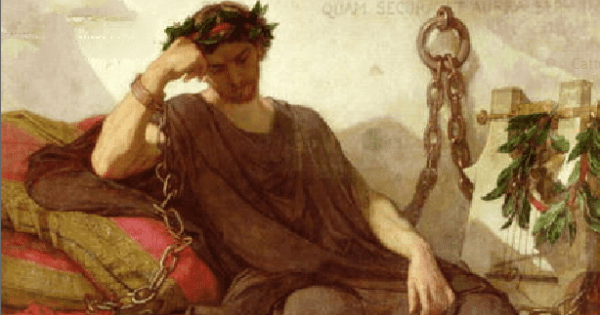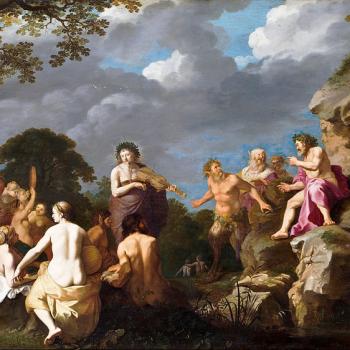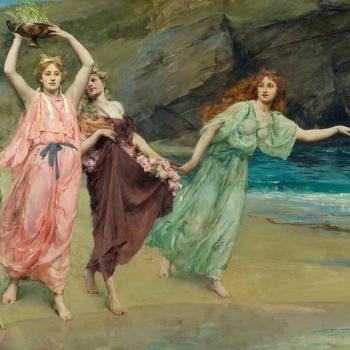The other night I was scrolling through Netflix and saw a documentary series called Origins. The description appealed to me so I looked at their episode list and watched two that I thought I would enjoy. Season 1 Episode 15 Writing, Libraries, & Internet (three ways for leaving a legacy, for the future) and episode 16 Monarchy, Democracy, & Communism (three forms of government and the struggle for nations to define themselves).
I picked these two episodes specifically because I knew they would have to cover Greek history and I wanted to see how they would cover it. I am sad to report that whoever wrote the scripts either willfully overlooked Greek history, or was merely uneducated on the topics. I suspect though it was the former.
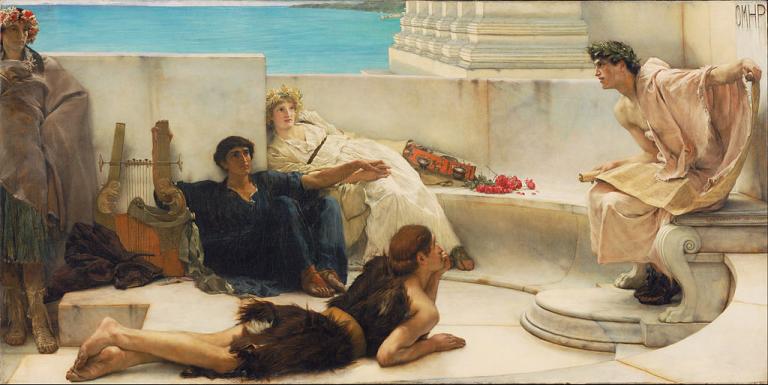
Episode 15, Writing, Libraries, & Internet left a big gap in the history of writing. I this episode, they explain the “origins” of writing, libraries, and the internet. Here is part of the timeline concerning the topic of ‘writing’ in the show.
1. Romania. 5,300 BCE
a. Vinca symbols
2. Sumer. 4,000 BCE
a. Cuneiform
3. Saqqara, Egypt. 2,800 BCE
a. The Maxims of Ptahhotep
4. Babylonia. 1,772 BCE
a. The Code of Hammurabi
5. China. 1,500 BCE
a. Gives a summary of topics Chinese writing.
6. Rome. 1st Century CE
a. Birth of the book. The Codex.
7. China 1045 CE.
a. Movable type method of printing.
You’ll notice a gap between China 1,500 BCE and Rome 1st century. This is where Greece would be talked about. The Homeric epics would have been a quick and easy talking point. The Homeric Epic’s long-lasting influence on Western Civilization is unquestionable. To me, it is criminal not to bring them up. The Iliad contains 15,693 lines while the Odyssey contains 12,110 lines. That is almost 28,000 lines of poetry in dactylic hexameter together.
Outside of the familiar Greek writings of Homer and later, the show could have showcased the Cretan hieroglyphic system c. 2100−1700 BCE, Linear A c. 1800−1450 BCE, and Linear B 1450−1200 BCE. All three are contemporaries with the other writings system mentioned in the show.
When the episode arrived on the topic of libraries things get hairy. When discussing libraries, it is certain that the Library of Alexandria will be mentioned and they did cover it in the episode. However, the way the oriented the subject is concerning. They position the topic starting with Alexander and Macedonia in 330 BCE. The show says that Alexander, after seeing King Ashurbanipal’s library (Neo-Assyrian Empire), he wanted to build one to rival it. Alexander dies at 32, and the task of creating the library was completed by one of his successors, Ptolemy Soter.
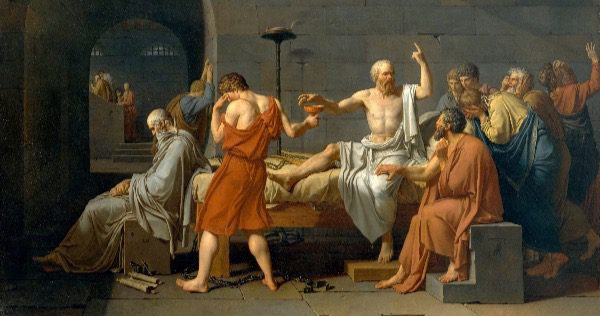
What is the problem? There is no mention of Greeks. Greece and Greeks do not appear in this episode concerning writing and libraries. When talking about Alexander he is described as only a Macedonian. This will inevitably mislead people into thinking he was not Greek in the long run. For years now, I have noticed the repositioning of Alexander as only Macedonian, as if Macedonians were not Greek. It is like saying Alexander the Athenian, and ignoring that Athenians are Greeks.
Additionally, there is a country north of Greece which has been calling themselves Macedonia and has appropriated Alexander for themselves. I cannot go into details here, please read up on the name dispute. While this episode and the name dispute are two separate issues, they tie together in changing people’s understanding of the world. If I knew nothing about history, after seeing this episode, I’d know that Alexander was from Macedonia. If I were to go online to look it up, I’d find that there is a country calling themselves Macedonia and if I do not investigate further, I will suspect this is where Alexander was from, when in fact Alexander’s place of birth, Pella, is in Greece. Also, if I were to run into someone who said they were Macedonian (from FYRM), I would think they are probably decedents of Alexander. It is the little things that change people’s perceptions of history which can have dangerous consequences.
In episode 16 Monarchy, Democracy, & Communism the Greek development of democracy was severely downplayed. Sparta and Athens are spoken about for a roughly one minute then the show moves on to England 1215. When discussing Athens (508 BCE), they highlight the reforms of Cleisthenes the “father of Athenian democracy.” For some reason, the show had to mention that Cleisthenes is the grandson of the tyrant Cleisthenes Of Sicyon, who the show says murdered his opponents. It seems the reason they mention this is to give probable cause to why Cleisthenes thought it was a good idea to reduce the power of the nobility, but I think the writer was just trying just to throw something negative in, because it is a random fact you need to look hard for. They also gave a laundry list of people who could not vote in Athens, an attempt to tarnish them.
The fact that they only give one minute to Greek democracy is shameful. If I did not know history and watched this episode I would not have learned that Greeks invented democracy and would just think it occurred there like it was not historically significate. Even with its failings, Athenian democracy is the most enduring legacy to the western world that the Greeks gave. Democracy, when we examine history, was not the normative form of government, and today is held to be one of our highest ideals. The lack of any emphasis of this is disturbing.
In sum, Netflix’s Origins gets a big fat F on their report card. The downplaying of Greek contributions and history is highly suspicious. It is either deliberately done by someone with an agenda, or done by someone ignorant of history. I plan on watching one more episode from season two, Gods, Ghosts, & UFO’s to see if the pattern of misrepresenting Hellenism continues.


